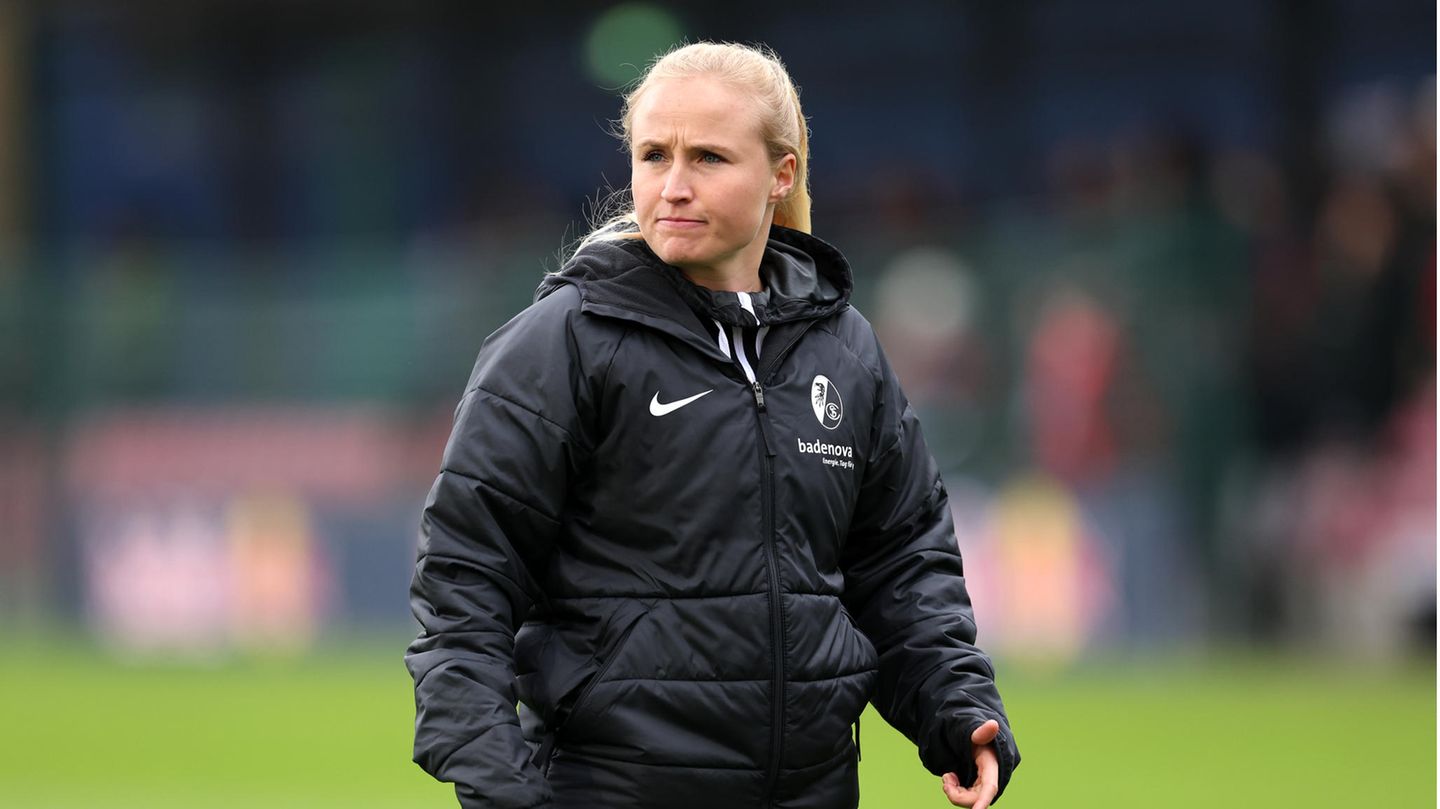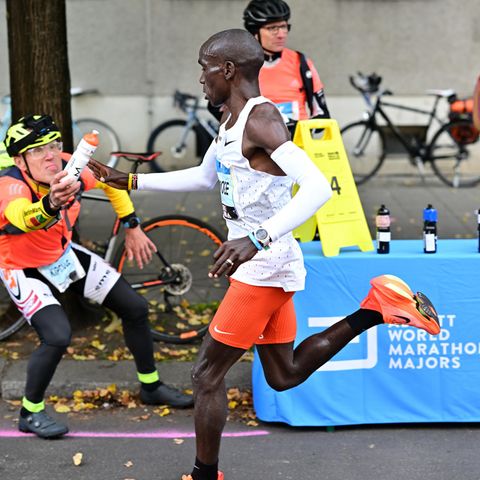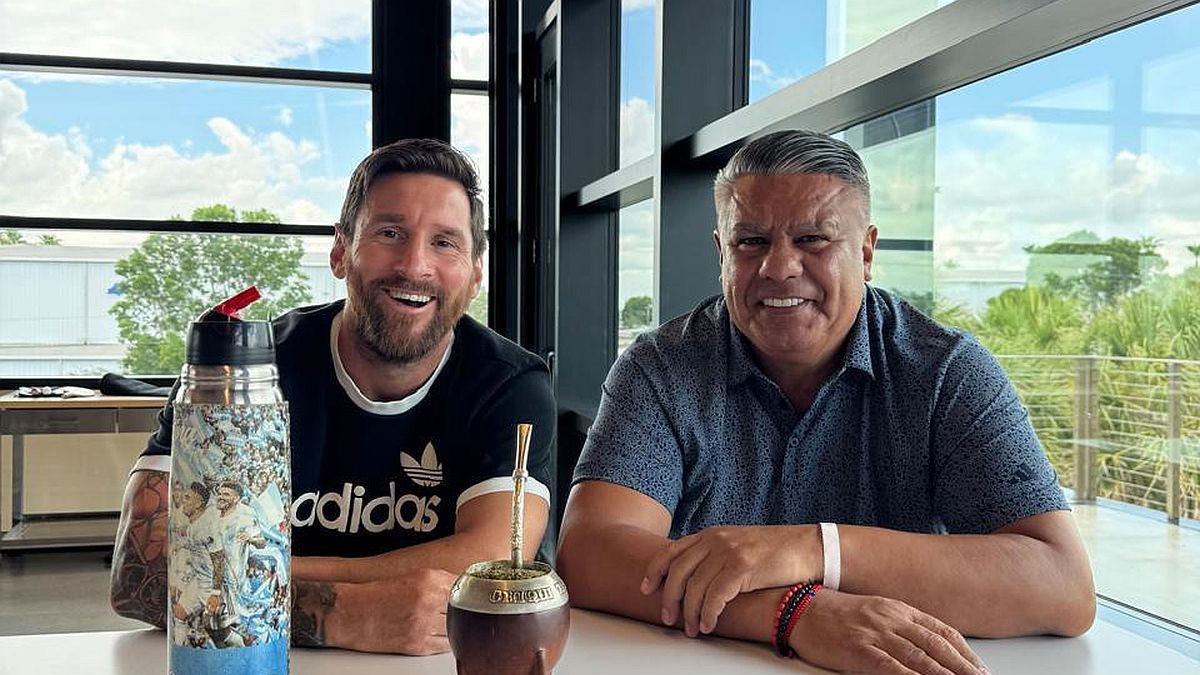Imke Wübbenhorst caused quite a stir as the men’s coach at Sportfreunde Lotte. She was not able to open any more doors as a result. One like Theresa Merk, coach of the women’s team at FC Freiburg, remains an exception.
Theresa Merk has taken over the former office of cult trainer Christian Streich at the Dreisamstadion. “Of course, everything was cleared out nicely – except for an old wall unit that used to be full of DVDs and video cassettes. Of course, you don’t need them anymore for video analysis today,” said the 33-year-old and laughs. Born in Ravensburg, she is one of the few women in top German football to hold a head coaching position. With SC Freiburg, she challenges the favorite VfL Wolfsburg in the women’s DFB Cup final in Cologne on Thursday (4.45 p.m. / ARD and Sky).
soccer coach? Many people stare when Theresa Merk names her profession. “So two or three years ago, the first question was: Okay – and you can make a living from it? Or: What else do you do?” says the former Wolfsburg assistant coach. “Meanwhile it’s mostly said: really cool – tell me!” That’s really interesting for a lot of people, because it feels like everyone has a bit of a connection to football. “A classic is also: How does your week look like? You train at most once a day? If you then talk a bit, then people say: Great, that’s all part of it?”
Female coaches like Theresa Merk are rare in the Bundesliga
A female head coach in football is still very rare – even in the women’s Bundesliga: In addition to Theresa Merk, there are only the Dutch Carin Bakhuis (33) at SV Meppen and Nicole Bender-Rummler (40) at twelve clubs 1. FC Köln stepped in on an interim basis as division manager.
“Super often,” says Theresa Merk, she is asked why there are so few female coaches in football. “I would find it really exciting if they were given to clubs where no coach works,” she counters. You need a mentor or something to get you into the club. “The fact that there aren’t enough posts like this for women naturally makes it a great risk to take this path in the first place. That’s why the inhibition threshold is relatively high.”
Many would think: “I would have to become a Bundesliga coach or work somewhere with the DFB for it to be a full-time job from which I can make a reasonably good living,” says Theresa Merk. Extrapolated, there are maybe 20 posts in Germany, plus a few association teacher positions. “In addition, there is simply a lack of female role models.”
Such as Sabrina Wittmann. She trains the male A-Youth in the Bundesliga at FC Ingolstadt and runs the youth academy. “In the beginning I was annoyed by this hype about the matter. Now I can classify it better and see my role more relaxed,” says the 31-year-old in the magazine “Elfen” and explains: “According to studies, it has been shown for many years that heterogeneous teams , – so not necessarily only men in managerial positions – are more promising.” This is an approach that should be followed: “The main thing is that more women should be part of a whole.”
Equal pay in football
Chancellor calls for equal pay for DFB women: This is what other national teams look like
Imke Wübbenhorst wrote a lot of headlines in 2019: After Inka Grings (SV Straelen), she became the second coach to train a men’s fourth division team – Sportfreunde Lotte for a good six months. But it did not go any further up in this area. Grings is now the national coach of the Swiss women’s team, Wübbenhorst is responsible for the Young Boys Bern soccer team.
DFB has some catching up to do with female soccer coaches
National coach Martina Voss-Tecklenburg has been asked again and again whether she feels capable of supervising a high-class men’s team – of course she said yes. “I trust her with every task,” said her colleague Hansi Flick. But it is also a fact that Voss-Tecklenburg’s expertise was not in demand when the German Football Association founded a task force around Rudi Völler after the men’s World Cup disaster in Qatar. And that the DFB has a lot of catching up to do when it comes to female coaching, even if there are now one or two women in every football teacher training course.
“I can well imagine that the players who are now experiencing professional football for the first time will simply stick with it and maybe become coaches,” says Theresa Merk. National players like Alexandra Popp, Merle Frohms and Lina Magull completed the elite youth license even before the EM 2022 as a first step in such a direction.
Maybe one day Alexandra Popp will be standing like Theresa Merk at a photo shoot in a large arena with top conditions, like the ones Freiburg women have had since they moved to the Dreisam Stadium. The men have moved on to the new Europa-Park stadium, which is why Theresa Merk doesn’t often see their head coach Streich. “But when we meet, it’s always really nice and we have a good conversation,” she says.
Source: Stern
I am Pierce Boyd, a driven and ambitious professional working in the news industry. I have been writing for 24 Hours Worlds for over five years, specializing in sports section coverage. During my tenure at the publication, I have built an impressive portfolio of articles that has earned me a reputation as an experienced journalist and content creator.




